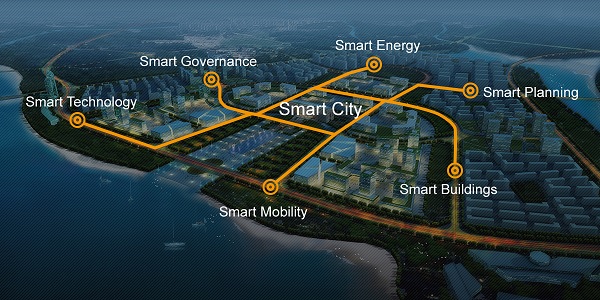
by admin | May 25, 2021 | Business, Corporate, Corporate Buzz, Economy, Emerging Businesses, News
 By Venkatachari Jagannathan,
By Venkatachari Jagannathan,
Copenhagen : Danish waste water treatment company Aarhus Vand A/S is looking at India’s Smart Cities project to lend its expertise in setting up integrated sewage treatment plants with a focus on generating power, company officials said.
To start with the company is looking at Udaipur in Rajasthan to provide its domain expertise, officials told visiting international journalists at its Marselisborg sewage treatment plant in Aarhus, around 300 km from here.
“Owned by Aarhus municipality, the company while treating waste water generates power from bio-gas, fertiliser, and enable district heating system. The company also plans to recover phosphorous from the waste water,” said Lars Schroder, Chief Executive Officer, Aarhus Water Ltd.
When pointed out the presence of sewage treatment plants in India, including in Udaipur and the absence for the need for district heating system, officials said Aarhus would provide its expertise in safe power generation from methane.
“In India the focus is on treatment of sewage water and not on energy. It may look easy to operate a waste water treatment plant, but it is not so. Power generation using methane has to be handled very carefully,” said Per Overgaard Pedersen, Chief Engineer, Production Department and Research Development.
At its Marselisborg sewage treatment plant, Aarhus powers its gensets with biogas produced while treating the water.
The power generated is used to run the plant and also wheel the surplus to the grid. For a water and waste water treatment company power cost accounts for a major share, officials said.
According to Pedersen, the next round of discussion with the Udaipur municipal authorities is expected to happen in November 2017.
Apart from treating around 32 million cubic metres of waste water per year generated by around 350,000 people of the town, the 90 million euro turnover Aarhus also supplies drinking water to the populace and provides energy for district heating system.
The company supplies around 15 million cubic metres of drinking water per year here.
Pedersen said the company is setting up a phosphorous plant at an outlay of around two million euros.
(Venkatachari Jagannathan is in Denmark at the inviation of Aarhus Vand A/S. He can be contacted at v.jagannathan@ians.in)
—IANS

by admin | May 25, 2021 | Corporate, Corporate Governance, Economy, News
 New Delhi:(IANS) With the announcement of 98 aspirants for India’s smart cities and the government incorporating sustainability as a key component of the project, global consulting firm PricewaterhouseCoopers (PwC) feels “the pillars of a smart sustainable city” are completely aligned with the proposed UN’s Sustainable Development Goals (SDGs).
New Delhi:(IANS) With the announcement of 98 aspirants for India’s smart cities and the government incorporating sustainability as a key component of the project, global consulting firm PricewaterhouseCoopers (PwC) feels “the pillars of a smart sustainable city” are completely aligned with the proposed UN’s Sustainable Development Goals (SDGs).
The SDGs, that will define the global sustainable development agenda post-2015, are a proposed set of global development targets to be adopted by governments around the world.
“The closer the integration of sustainability into India’s ‘100 Smart Cities’ initiative, the greater will be the linkages with the SDGs,” PwC said in a report titled “Making cities smart and sustainable”.
“The pillars of a smart sustainable city are also directly or indirectly aligned with the objectives of the SDGs,” the report said.
Under the government’s 100 smart cities programme, each selected city will receive central assistance of Rs.100 crore annually for five years, driving economic growth.
Citing good governance, planning and financing as among the key institutional factors for realising sustainable cities, the report said “responsibility and accountability are integral towards making our community more sustainable.”
“Good governance serves as a powerful inspiration for promoting reforms in policies and programmes for sustainable development,” PwC said.
“These include open and transparent opportunities for the poor and underprivileged to access information and secure their rights over land, forest and energy resources,” the report added.
According to an estimate, by 2050, the population in Indian cities will touch 843 million.
The report said the “government’s smart city initiative has specified several possible funding sources- both conventional as well as innovative, in order to meet the Rs.7.5 trillion amount required over 20 years”.
“Besides central and state funding, the list includes possible funding from multilateral and bilateral development agencies, pooled municipal debt obligation facilities, municipal bonds, real estate investment trusts and infrastructure investment trusts.”
The report was prepared for presentation at the Smart City Landscape 2015 international exhibition and conference held here earlier this month.
Participating companies included Hewlett-Packard, Wipro, CISCO, Schneider Electric, Lavasa, Barco, Berger Paints India, L&T Construction, Volvo, Skipper Ltd, Royal Appliances, the Newgen Group, among others.


